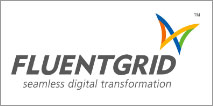Blockchain has attracted the attention of the power industry with its potential to unleash an energy revolution in which both electric utilities and consumers will produce and sell electricity. In order to provide flexibility, a regulatory sandbox mechanism needs to be developed for levelling the playing field for all the stakeholders developing new applications, thereby extending guarantee within the regulatory framework. This roundtable addressed these challenges, and evaluated different models of governance and regulation in an increasingly decentralised world.
The speakers at this session included R.P. Singh, chairman, UPERC, who delivered the special address; Ana Trbovich, Grid Singularity & Energy Web Foundation; Jitendra Nalwaya, head, system operation and sustainability, BYPL; Lalit Wasan, head of department, Power System Control, Tata Power Delhi Distribution Limited; Vinod Tiwari, head of business development and sales, Power Ledger, Australia; Mohua Mukherjee, former member of staff, The World Bank and adviser, India Smart Grid Forum (ISGF); Vaska Dimitrova, Verbund, Austria; Amanda Ahl, digital industry analyst, Bloomberg NEF; and Oriol Pujoldevall, Energy Web Foundation. The session was moderated by Reena Suri, executive director, ISGF and global ambassador, Energy Web Foundation.
Some of the key takeaways from the session were:
- Two industries where the use of blockchain is highly regulated are finance and energy. For the former, it is to safeguard individual rights and prevent frauds while for the energy industry, it is to ensure security of supply and resilience of the grid.
- It is important to deploy digital applications that make industry efficient while complying with the law.
- For P2P trading, access to market is a key concern. In fact, in different countries, while legislations, per se, do not classify energy trading as illegal, the barriers are too high to comply with the regulations.
- In India, while blockchain technology is not banned, its use is not looked at favourably by the government due to its association with crypto currencies. Another key challenge is that the technology still has low penetration in India.
- Blockchain is part of a wider menu that involves the internet of things for data generation and artificial intelligence for decision making. Open-source models would be key to leveraging blockchain technology.
- Blockchain enables the implementation of smart contracts, self-executing programs that can be used to better manage systems and integrate higher shares of renewables through automation.
- Blockchain projects currently being implemented in Uttar Pradesh (UPPCL) and Delhi (Tata Power-DDL and BSES) are expected to facilitate a P2P energy market trading place.
 Reena Suri, Executive Director, ISGF, and Global Ambassador, Energy Web Foundation
Reena Suri, Executive Director, ISGF, and Global Ambassador, Energy Web Foundation

Ana Trbovich, Grid Singularity & Energy Web Foundation

Mohua Mukherjee, Former Member of Staff, The World Bank and Adviser, ISGF

R.P. Singh, Chairman, UPERC

Vinod Tiwari, Head of Business Development & Sales, Power Ledger, Australia



Vinod Tiwari, Head of Business Development & Sales, Power Ledger, Australia

Supporting Ministries 2021

KEY PARTNERS 2021
Powered by: 
Host Utilities: 
Co-Host Utilities: 
Partner Utilities: 
Platinum Partner: ![]()
ISGF Innovation Awards Partner: 
Gold Partner: 
Session Partner: 
Technology Partner: 
Silver Partners: 
Country Partners: 
Bronze Partners: 
ISUW 2021 EXHIBITORS

